The Baha’i International Community (BIC) is seeking a new kind of dialogue in the world, one that is more consultative, unifying, inclusive, one in which new approaches and new thinking can emerge.
In spaces at the United Nations and numerous regional organizations, this pursuit is leading to promising developments.
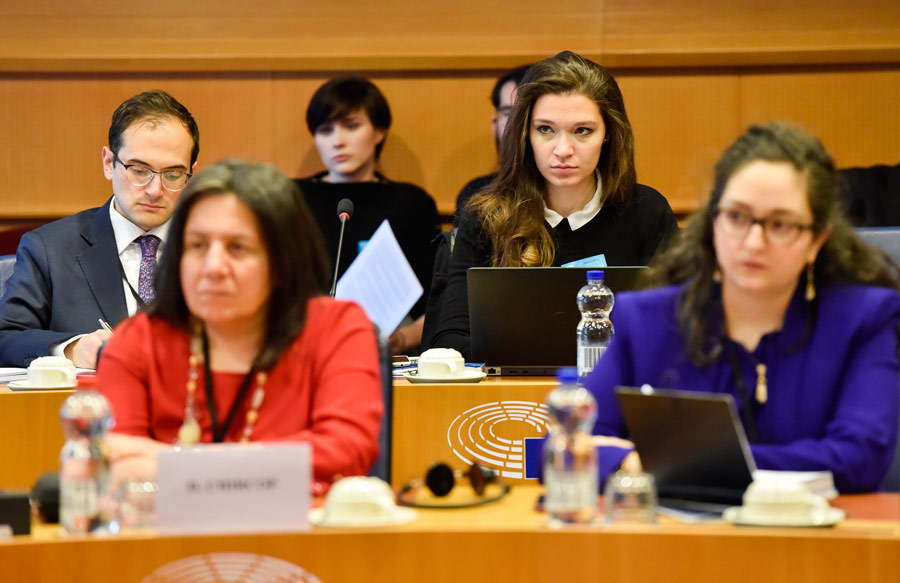
The roundtable discussion sought to stimulate an exploration of Europe’s changing religious landscape and a rethinking of religion’s role in helping European societies address their various contemporary challenges.
“It’s unrealistic to address the issues currently facing humanity and Europe without trying to overcome patterns of fragmented thought that often characterize public discourse. However difficult this seems, we will need to start forming a collective vision of the future of our society,” BIC Brussels Office representative Rachel Bayani said at an event co-organized by the BIC, the European Parliament, and the University of Groningen on Monday.
“One of the areas of fragmentation in thinking today is the discourse on the role of religion, whether in Europe or in the world at large,” stated Mrs. Bayani in the opening remarks. “The challenge is to create a meaningful conversation where we all take the time to question our own paradigms, patterns of thought, and assumptions and to create a discourse on the role of religion in European society which is nuanced, informed, and dispassionate.”
The roundtable discussion sought to stimulate an exploration of Europe’s changing religious landscape and a rethinking of religion’s role in helping European societies address their various contemporary challenges. Some 50 policymakers, practitioners, and academics attended.
The event was structured so that an academic’s presentation on a subject was followed by a response by a European policymaker, who would then explore the implications and challenges of that subject for policy. A rich discussion ensued between each presentation.
The distinctive event was part of the Article 17 dialogue—the dialogue between the European Parliament and religious and philosophical organizations. It was organized under the patronage of First Vice-President of the European Parliament Mairead McGuinness. Fearghas O’Beara, Administrative Coordinator of the European Parliament’s Article 17 Dialogue, attended the forum.
The concept of secularism was one of the major threads of the conversation. Benjamin Schewel, a lecturer from the University of Groningen, explored various definitions and understandings of secularism. For instance, secularism can mean the exclusion of all expressions of faith in the public sphere. Alternatively, it can also be a way to protect diversity of various religious and non-religious belief systems and their public expression. “The European Union is a secular political entity. But what precisely this secularity means is not fixed in stone,” Dr. Schewel, who is a Baha’i, stated.
He evoked the metaphor of a road and its guardrails. “The guardrails do not tell us what direction in which to build the road,” he explained. “Similarly, secularism can provide certain limits and safeguards within European societies, but it cannot itself answer the deeper questions about where society is headed and what kind of society we want to build.” It was these deeper questions, he argued, to which religion can contribute insights and its community-building powers.
Among other topics discussed was religious heritage and the evolving role of places of worship in Europe. With fluctuations in congregation sizes, religious communities are searching for new meanings and functions for historic churches and synagogues, explained Todd Weir, a professor from the University of Groningen’s Faculty of Theology and Religious Studies.
The event also explored the interconnection of religion and gender, allowing for a nuanced and thoughtful exploration. Brenda Bartelink, also a senior researcher from the University of Groningen, spoke about the critical need to foster a dialogue around religion and gender that is constructive and non-adversarial and that avoids dynamics of polarization.
Liam Stephens, a Ph.D. candidate from the Vrije Universiteit Amsterdam’s Department of Political Science and Public Administration and a Baha’i, discussed the role of religion in fostering resilience to radicalization. One contributor to radicalization is young people’s search for purpose, Mr. Stephens notes. Religion, he asserted, serves as a powerful source of a higher and altruistic purpose that motivates constructive action within individuals and communities. “For vast numbers of the world’s population,” he said, “religion offers a source of love, hope, meaning and solidarity, and helps to overcome apathy and despair.”
The open, exploratory discussion freed participants from the pressure of making immediate policy decisions and opened a distinctive conversation which many expressed hope would be replicated.
One idea appeared certain for all present—that all human groups are searching for meaning and for a vision of the future. “This common aspiration is a powerful point of unity,” the BIC reflected.


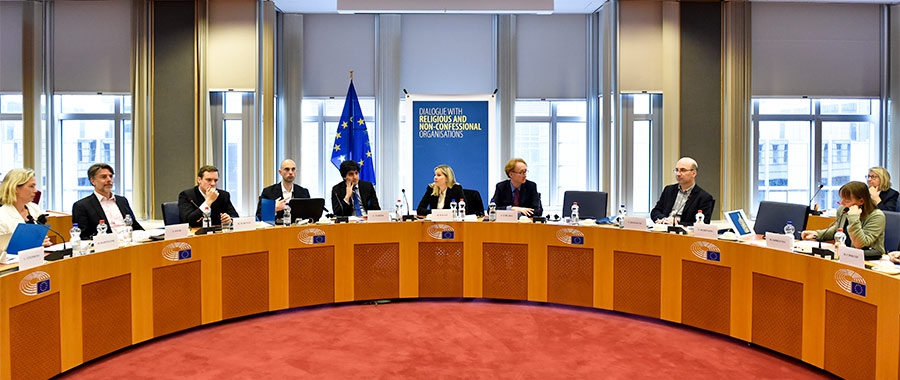

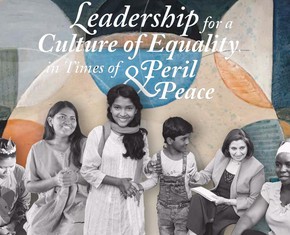
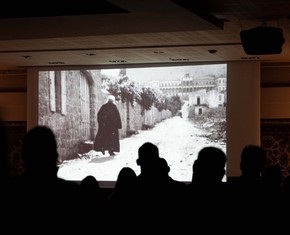
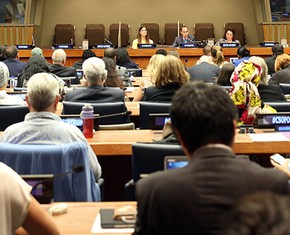









Comments
Sign in or create an account
Continue with Googleor